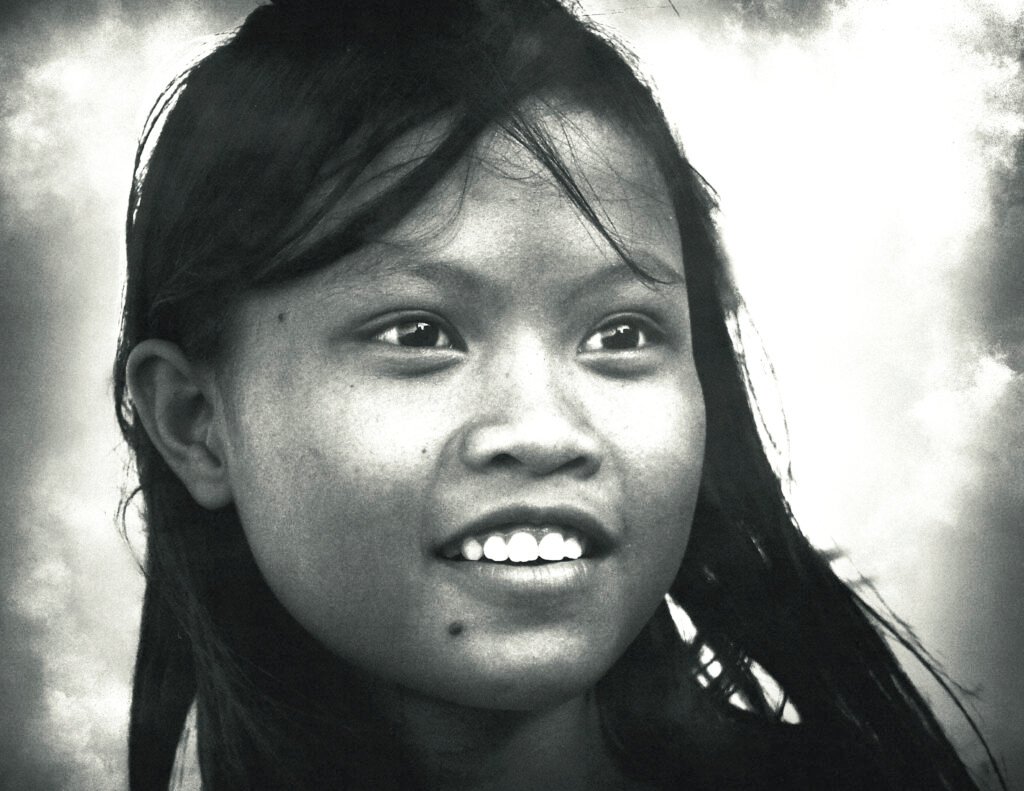
They call her Dalisay, though no one knows if it’s her real name. She never corrects them. It means pure—a name too soft for someone hardened by streetlight and stone. She roams the narrow streets of Laoag, Tuguegarao, sometimes even up the winding roads to Baguio, barefoot and wiry, a shadow among stalls and sidewalk cracks. Twelve, maybe thirteen. A girl of wind-chapped lips, tangled hair, and eyes that flinch when kindness comes too fast. She wears a faded red hoodie with only one pocket and a pair of shorts cut from old jeans. No bag. Just a plastic sack tied to her wrist: a comb, three boiled eggs, a rosary with the cross worn smooth.
In the morning, she weaves through the palengke—“Sir, sampaguita? Ate, suka, suka o calamansi?”
Her voice is quick, almost a song, half plea, half survival. Vendors know her. Not well. But enough to throw her a banana or a leftover pan de sal before the tricycle fumes choke the morning air.
When rain comes, she hides beneath awnings, curled like a cat, eyes fixed on the road. Not afraid—just used to being wet. She says the water washes things away. Hunger. Bad dreams. The sound of her father’s voice when he drank too much. She doesn’t talk about her mother. Only once did she whisper:
“She wore gold earrings. But not real gold. The kind that turns green after rain.”
At night, she watches from behind fruit stalls, small and still, like a ghost in the edges of neon. Lovers laugh. Jeepneys idle. A baby cries inside a sari-sari store. She eats slowly if she’s managed to earn. Faster if she stole. She dreams of strange things: a tent on soft ground, a real school bag, a bus ticket with her name printed on it—first name, middle, and last.
But dreams don’t last long in her world. Still, when no one’s looking, she skips once, just once, across the sidewalk cracks—pretending, maybe, that she is not hungry, not dirty, not invisible.
Just a girl. Named Dalisay. Running home.